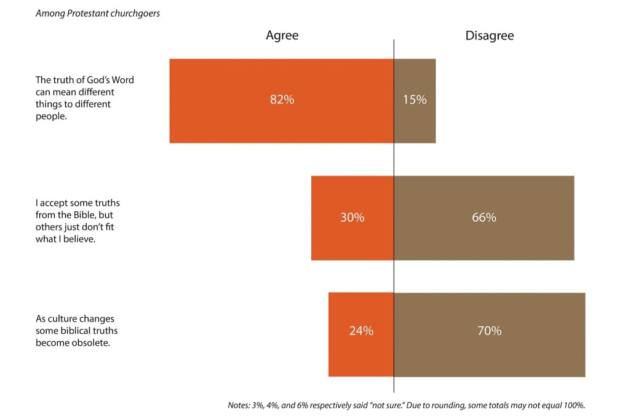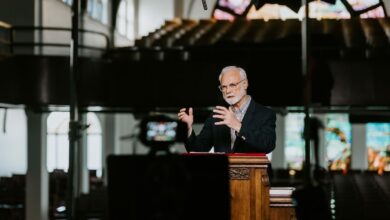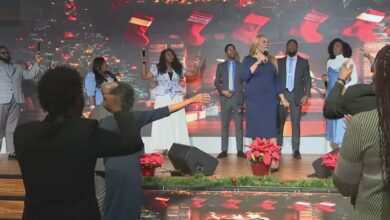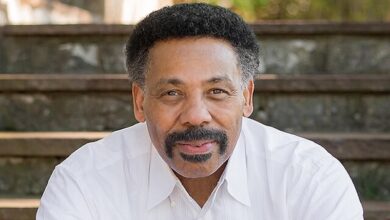Majority of churchgoers say they have trouble understanding Bible on their own
More than half of all churchgoers say they have trouble understanding the Bible on their own, a new LifeWay Research study found.
“Churchgoers are ready to defend the Bible as true and as a faithful moral standard,” said Scott McConnell, executive director of LifeWay Research. “But most admit they stumble on understanding the specific meaning as they read.”
“Reading and studying as an individual is important, but we need others to help us think through what we discover,” said Dwayne McCrary of Explore the Bible. “Studying together also allows us to gain insights from others that move us forward in our study as well.”
Regardless of how challenging churchgoers find the Bible, they seem sure they can recognize its relevance to them and help others understand it.
- Nine in 10 churchgoers (90 percent) agree they can usually understand how a passage of scripture is relevant to them. Only 7 percent disagree.
- Four in five express confidence in their ability to help others with doubts about the truthfulness of scripture (81 percent), difficulty accepting morals taught in the Bible (82 percent) and confusion over a Bible passage (81 percent).
“It is possible the confidence churchgoers have in helping others understand the Bible comes more from what they have been taught than from their own reading,” McConnell said. “Those who attend church most frequently have more confidence in helping someone with a confusing passage of Scripture.”
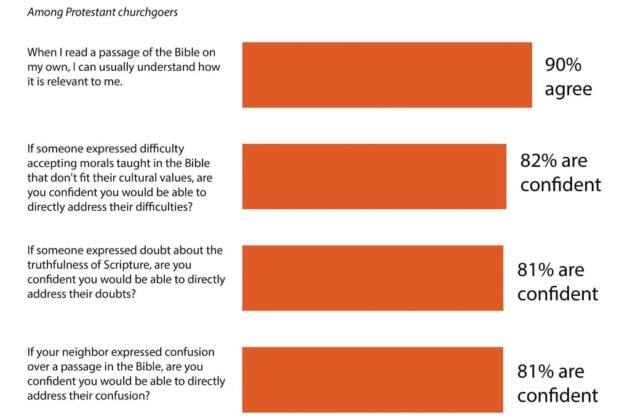 For McCrary says there’s a tendency to hurry and short circuit the Bible study process by confusing the meaning of a text with its application. “We tend to jump from what a passage says to what we do in response and forget to consider the principle or truth behind what is said,” he said. “Doing Bible study correctly takes time and thought, but it gets us to the meaning – which does not change – so we can then look at how we encounter God today and what our response should be to those encounters.”
For McCrary says there’s a tendency to hurry and short circuit the Bible study process by confusing the meaning of a text with its application. “We tend to jump from what a passage says to what we do in response and forget to consider the principle or truth behind what is said,” he said. “Doing Bible study correctly takes time and thought, but it gets us to the meaning – which does not change – so we can then look at how we encounter God today and what our response should be to those encounters.”
Older churchgoers are more likely to feel hesitancy in their biblical understanding than others in the pews. Around one in five churchgoers 65 and older (19 percent) lack confidence in their ability to address the doubts of someone struggling with the truthfulness of scripture. Younger churchgoers, those 18 to 34, are the most likely to agree (36 percent). Those who attend church less frequently and those without evangelical beliefs are also more likely to see some truths from the Bible as culturally obsolete today.
“For a religion claiming a basis in God’s word, it’s surprising to see this many practicing Christians giving their own word priority in their beliefs,” McConnell said. “In a world filled with constant changes, it’s hard for some to accept the biblical claim of an unchanging source of truth.”
–Dwight Widaman | Metro Voice



